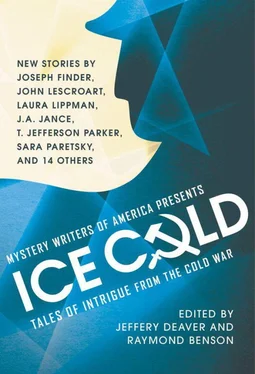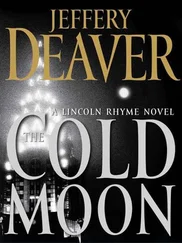And that brings me to the question at hand. At my age, I know I could die tomorrow. Hell, I could kick the bucket tonight during dinner. Of all the memories I possess from my long life, there are indeed many treasured ones and also some I’d prefer to forget. And then there’s the one I wish to God I could understand before I close my eyes for the last time.
What happened to the Szalay family that fateful evening of November fourth, nineteen-fifty-six?
It was a busy morning at the embassy. A lot was going on in the world that day. I was at my desk tracking the Suez crisis, because we knew the Brits were going to join the Israelis in the war with Egypt. That whole shitstorm began during the summer, when Nasser declared the Suez Canal belonged to Egypt alone and kicked out the Brits, with whom the Arabs had already fallen out over the existence of Israel. I imagine the Brits’ colonial attitudes also had something to do with the feud. France got into the act and it was shaping up to be a war between Israel, the U.K., and France on one side, and the Arabs, in particular Egypt, on the other. Everything grew tense for the next couple of months, and finally, just six days prior to November fourth, Israel attacked Egypt.
After the fact we found out the Brit operation was called “Project Telescope.” On the fifth, the Brits dropped paratroopers into the country. Royal Marines landed on the sixth. At that time, the U.S. position on it all was to discreetly favor the Arabs. It was in America’s best interests to keep peace in the region. The Suez Canal was a major artery for the efficient flow of oil to the West. We also knew that the Soviet Union was backing the Arabs in the cause, and we didn’t want to piss them off. Eisenhower didn’t want to escalate the thing into World War Three. So America would end up trying to broker peace, which we eventually did, perhaps by dangling the possible fluctuation in value of the pound sterling over Prime Minister Eden’s head.
Anyway, that was all going on in the Middle East. In Vienna, we were mostly concerned about the situation in Hungary. Although things had been quiet in that country for a week, the Soviets were going to invade the country that morning , the fourth. Needless to say, our phones were ringing nonstop. We had Hungarian refugees pouring into Austria from across the border—the first time since the war that citizens could do so. We had no idea how bad it was going to be in Hungary, but we knew it could get ugly. The Soviets were probably going to clobber the revolutionaries and punish the rest of the country for the rebellion.
Today it’s called the Hungarian Uprising of nineteen-fifty-six. The Hungarian people got fed up with being ruled by the communists. On October twenty-third, students led a protest in Budapest that became violent—and suddenly it seemed that the entire country took up arms against their overseers. In five days, all Russian troops had been pushed out and back into the USSR. The Hungarian government failed, and a coup went into effect led by the “New National Government.” Imre Nagy was appointed their first prime minister. The revolt was bloody and frightening to the rest of the world. Of course, the U.S. was on the revolutionaries’ side, but we couldn’t say so publicly.
For nearly a week, there was calm. It looked like the Soviets were going to leave Hungary alone. Hordes of Hungarians left while the borders were open.
But we knew that on November fourth the Soviets were going to strike back. In fact, we learned about it that very morning and did our best to get the intelligence where it was needed. In another week, though, the Soviets crushed the Hungarians and punished them, too. Thousands were lost. The arrests, kangaroo trials, and executions of hundreds of people went on for years. The country was under communist rule until the fall of the USSR in nineteen-eighty-nine. Today the Uprising is remembered as something akin to a Hungarian Holocaust, and the date is a national holiday.
As I was going over the latest cables from our station in Egypt, Ambassador Thompson called me into his office. As I assumed, it was about the Hungarian situation.
“The Soviets are encircling Budapest as we speak,” he said in his typically calm, soft voice. “By tonight the city will be cut off. We understand the Soviet Eighth and Thirty-eighth Armies were deployed to boost the divisions already posted in Hungary. It’s going to be a bloodbath.”
“What are we going to do, sir?” I asked.
“Nothing, of course. What can we do? Unless the rebels hold out—which I seriously doubt will happen—Hungary will once again be under Moscow’s control. I give them five days. A week, tops.”
“I’m afraid I agree.”
He shook his head and made a tsk-tsk sound. Then he took a manila folder that lay on his desk and opened it. “I have a small task for you. We received a coded cable from Dulles this morning with the request that we handle the matter.” Thompson handed me the transcribed signal, along with a photograph of a middle-aged man with eyeglasses and a mustache. To me he looked like a college professor. His name was handwritten at the bottom. I had never heard of Tamás Szalay before that moment. Apparently he was a high-level guy in the Hungarian Working People’s Party, someone with access to all the Soviet puppet big shots like Münnich and Kádár.
The instructions, which used Dulles’s own code identifiers, said that Szalay and his family were among the refugees rushing to get out of Hungary, and the man wanted to defect to the West. He possessed extremely valuable information about the Soviet Union’s plans to aid the Arabs in the Suez Crisis in the event that the U.S. entered the conflict. It was the kind of intelligence for which men were killed.
“Szalay is already in Austria,” Thompson said, “and he will be in Vienna tonight. The problem is, the Soviets were unaware he had fled the country until yesterday. They know what he knows. They want him back. Failing that, they’ll kill Szalay to prevent him from defecting.”
“You said he’s with his family?”
Thompson nodded. “A wife, a teenage daughter, and a young son.”
“Christ. That’s not conspicuous, is it?”
“Right. Now they’re in hiding, but we have to get them out as quickly as possible. Would you mind being their contact tonight?”
“Me?” I wasn’t an operations man. I should point out that my expertise in intelligence lay in strategizing and analyzing data. I wasn’t the type of field agent who got his hands dirty. I never carried a gun. Fiction has often exaggerated what we did during the Cold War, especially those of us who were stationed in foreign cities. The spy game was mostly played on paper, or by interpersonal interaction with assets, or by observation. The cloak-and-dagger stuff was strictly for the movies and the novels of John le Carré and Ian Fleming. Thus, up to that day, my years in the CIA, while filled with many tense and worrisome moments, had never brought me face-to-face with violence.
“I’m afraid there’s no one else. Really, it’s just an easy diplomatic mission. You can handle it.”
“What am I supposed to do?”
“Our Austrian friends will deliver the family to you tonight at the Prater . You’ll babysit them for an hour or so, and then they’ll be picked up by one of our men. That’s it.”
“Why the Prater ?” The Wiener Prater was Vienna’s long-standing amusement park, where The Third Man Ferris wheel was located.
“I have no idea. Maybe somebody decided that if they were going to appear in public, then the park would be the safest place. After all, they have children. Unless the Soviets know where they’re hiding, they can’t track them to the park. At least, that’s what we’re hoping. At any rate, extreme discretion is a priority. An Austrian asset will have all the details by lunchtime. You’re to meet him at noon.”
Читать дальше












